Video produced by Hannah Tran and Ben Ward/CSU Social
Amidst the chorus of chants and cheers, more than 1,500 community members gathered to celebrate the life and legacy of Martin Luther King Jr. Monday, marching from Old Town Fort Collins to the heart of Colorado State University’s campus.
The community members who packed the march’s start on Jan. 16 at Washington Park embodied the theme for the annual celebration: V.O.I.C.E. (Violence. Oppression. Isolation. Cannot. Endure.).
Members of The BIPOC Alliance — an organization where Black, Indigenous and People of Color take action to decolonize systems and institutions — led the march’s charge. The group honored the 60th anniversary of King’s iconic “I Have a Dream” speech in Washington, D.C., and led the crowd in chants.
“The louder our voice — the more we will be heard,” the crowd chanted, smothering the horns of a passing train on Mason Street.
March leaders included representatives from CSU, the City of Fort Collins, Front Range Community College, Poudre River Public Library District, Poudre School District and SummitStone Health Partners.
CSU was represented by Ethnic Studies Professor Roe Bubar and Mike Buttram, the basic needs program manager for CSU’s SLiCE. Additionally, CSU leaders participating in the march included Interim President Rick Miranda and Incoming President Amy Parsons, among many others.
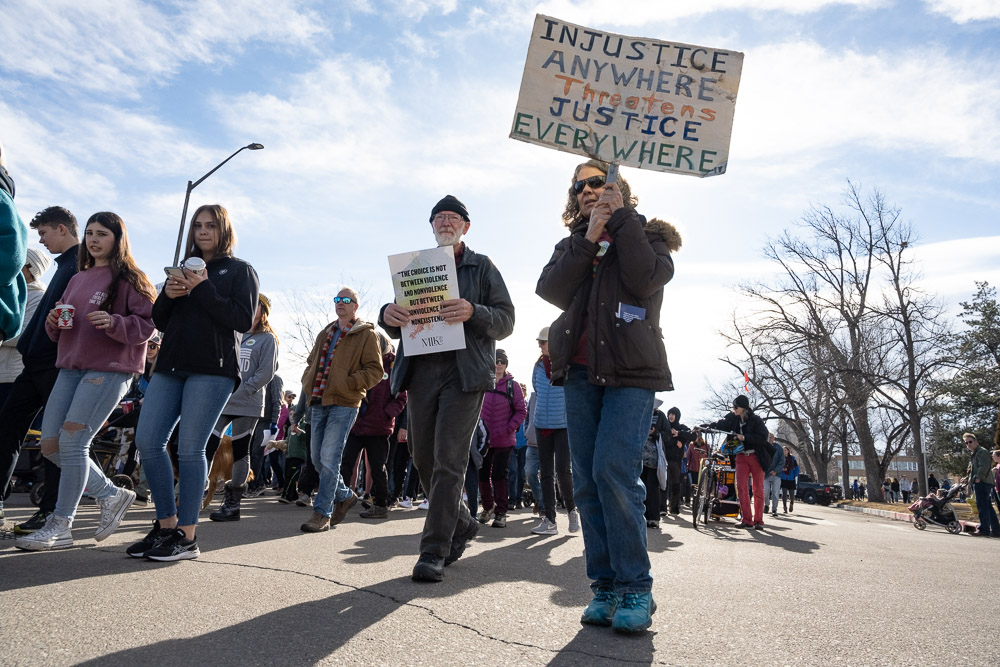
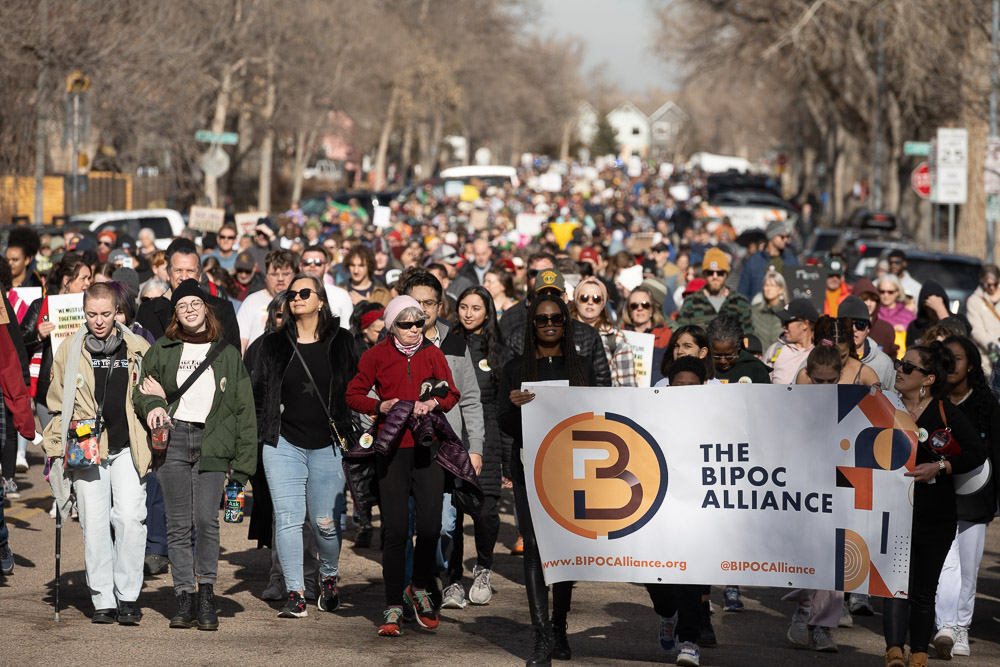
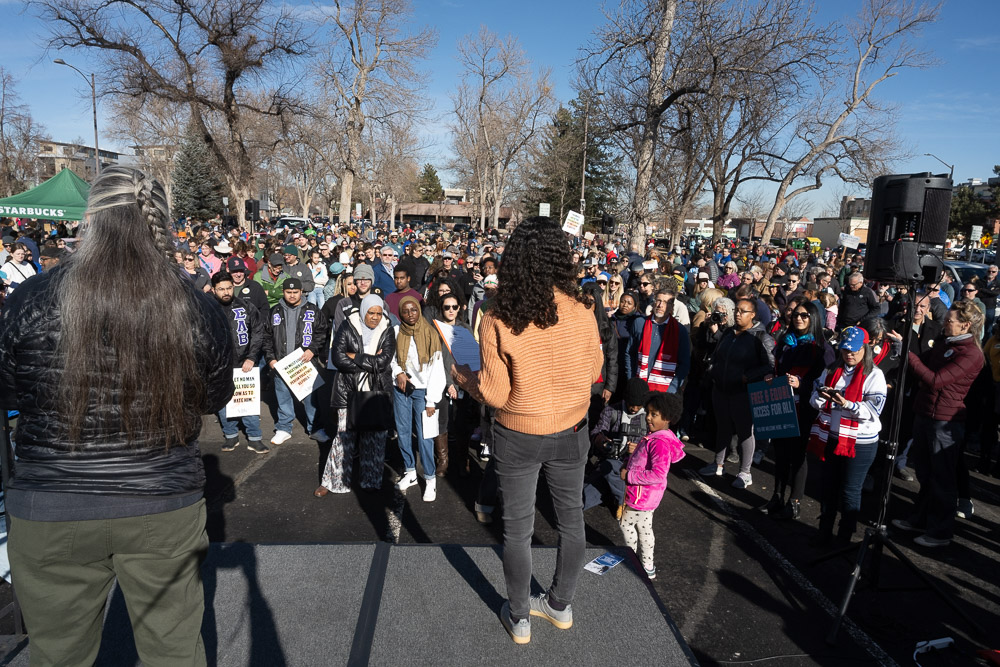
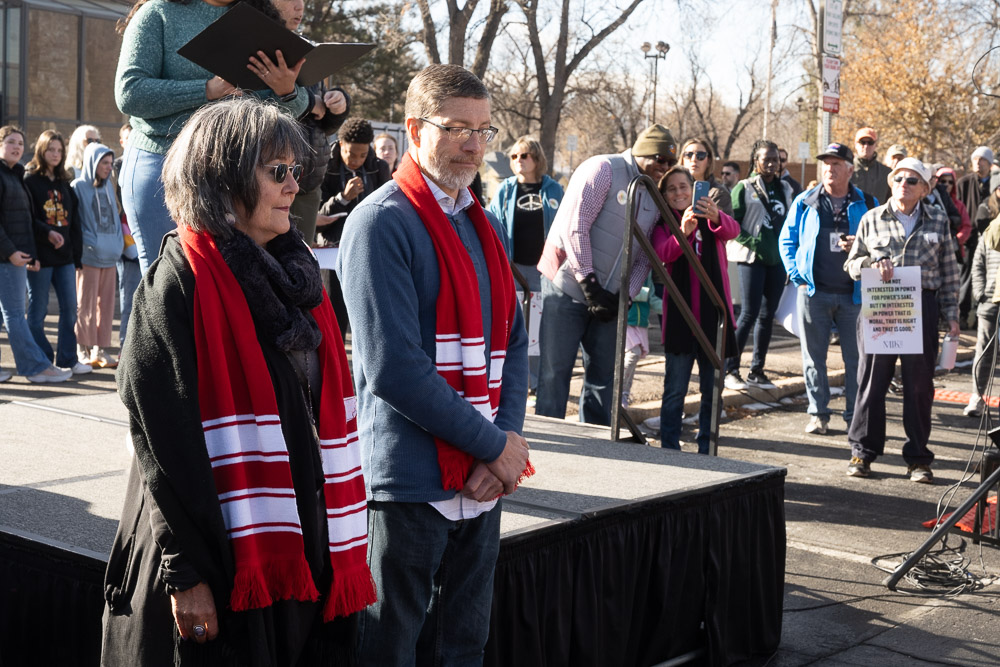
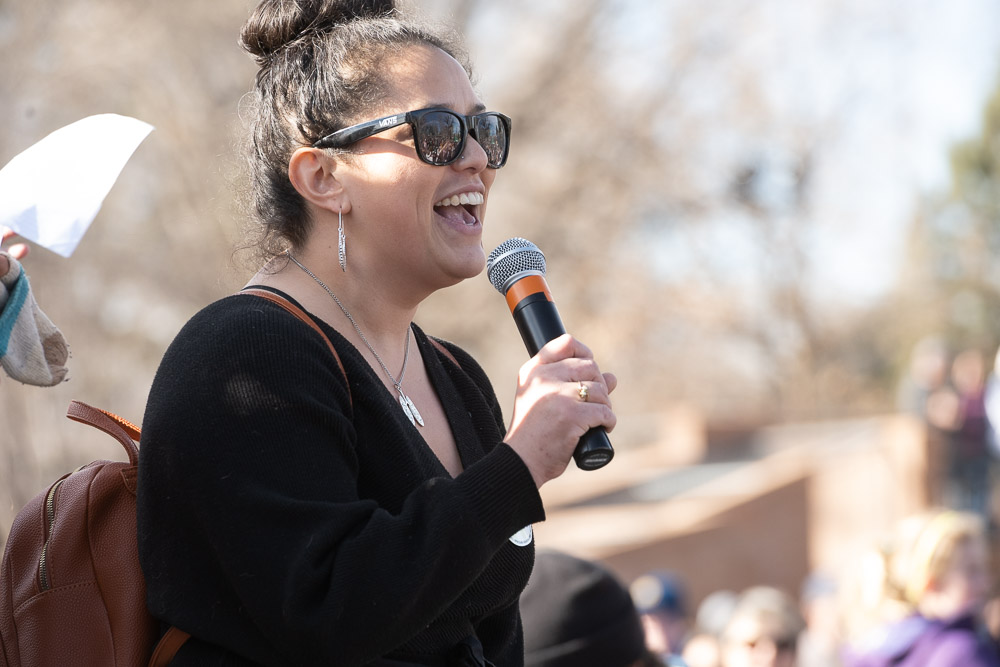
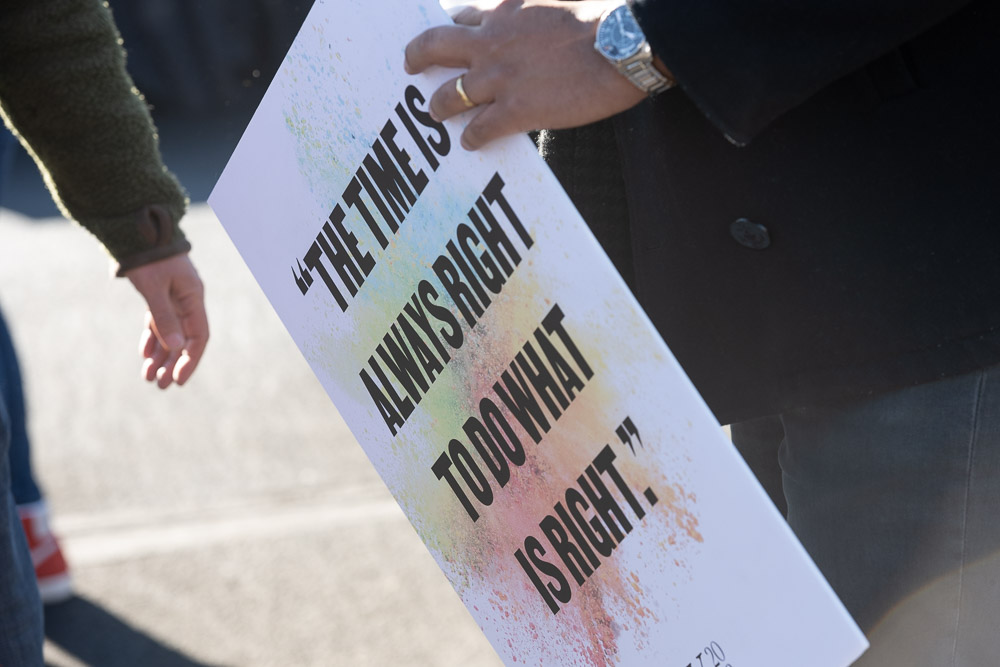
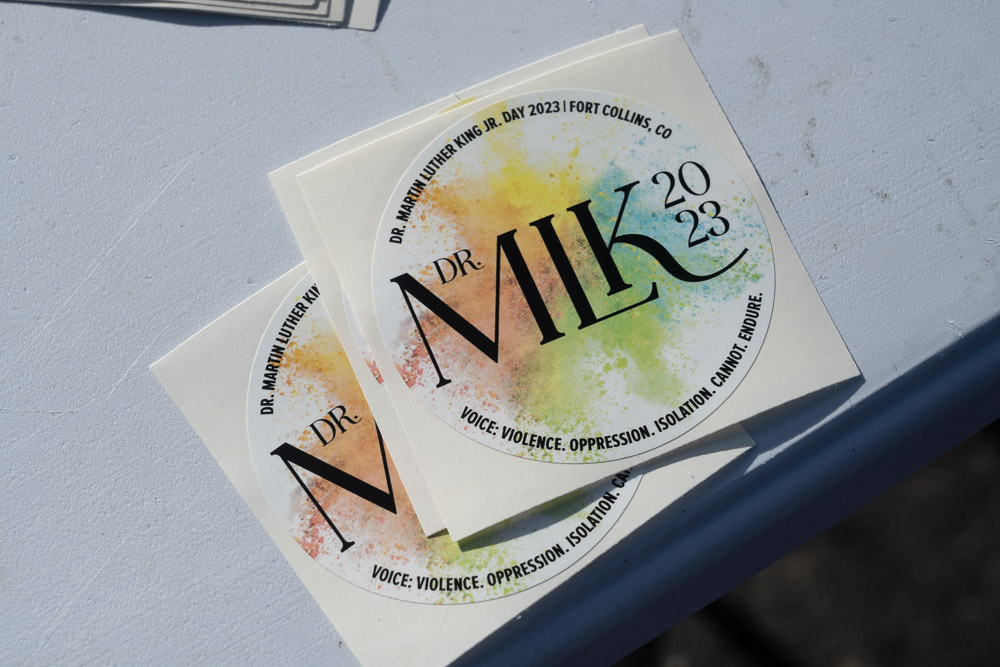
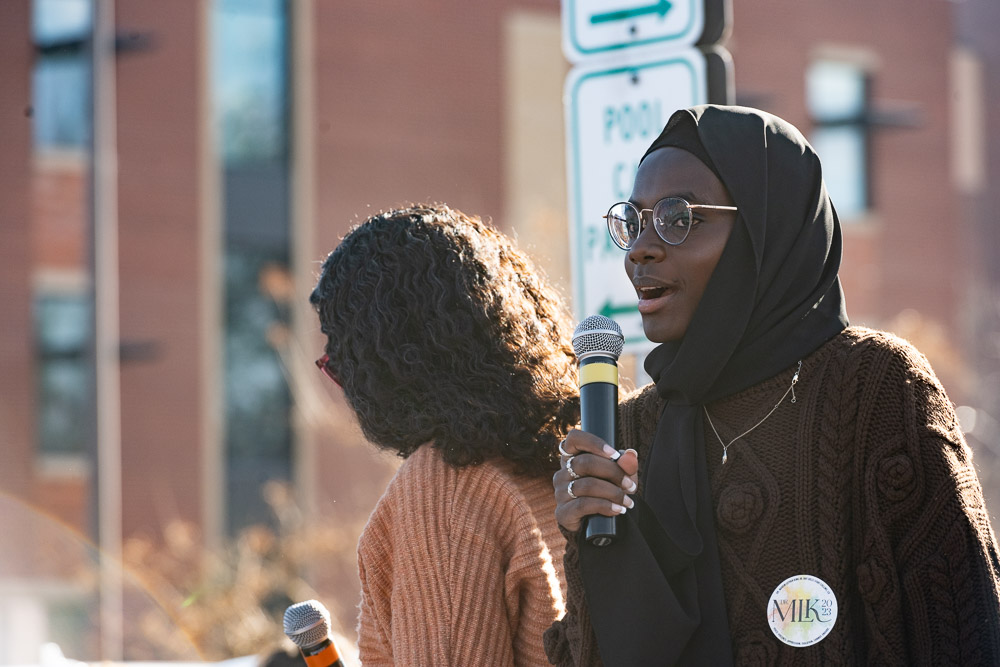
More than 1,500 community members participated in the Martin Luther King Jr. Day march, according to organizers. Photos by John Eisele/CSU Photography
Prior to the march, Fort Collins Mayor Jeni Arndt gave a proclamation encouraging community members to continue King’s dream of unity and equality.
The 1.3-mile route to CSU’s Lory Student Center featured several historical Black houses, including the home of the Clay family, who helped establish a thriving Black community in Fort Collins. The route also took marchers past the home of Mattie Lyle, who challenged discrimination in 1939, winning a significant court case just a decade after the peak of Ku Klux Klan activity in Fort Collins.
Community member Arthur Johnson Jr. was among the hundreds of participants. Johnson, a former CSU employee who currently works for SummitStone Health Partners, said he has been attending Martin Luther King Jr. Day marches in Fort Collins for 25 years.
With a smile on his face, he greeted friends and community members with a hug and sang: “Deep in my heart — I do believe that we shall overcome — someday.”
It was a melody that he said embodies the spirit of his lifelong desire to follow in King’s footsteps.
“Remember this, we are all equal,” he said before singing the chorus from Queen Latifah’s song “U.N.I.T.Y.” and taking part in the march with friends.
Celebration at Lory Student Center
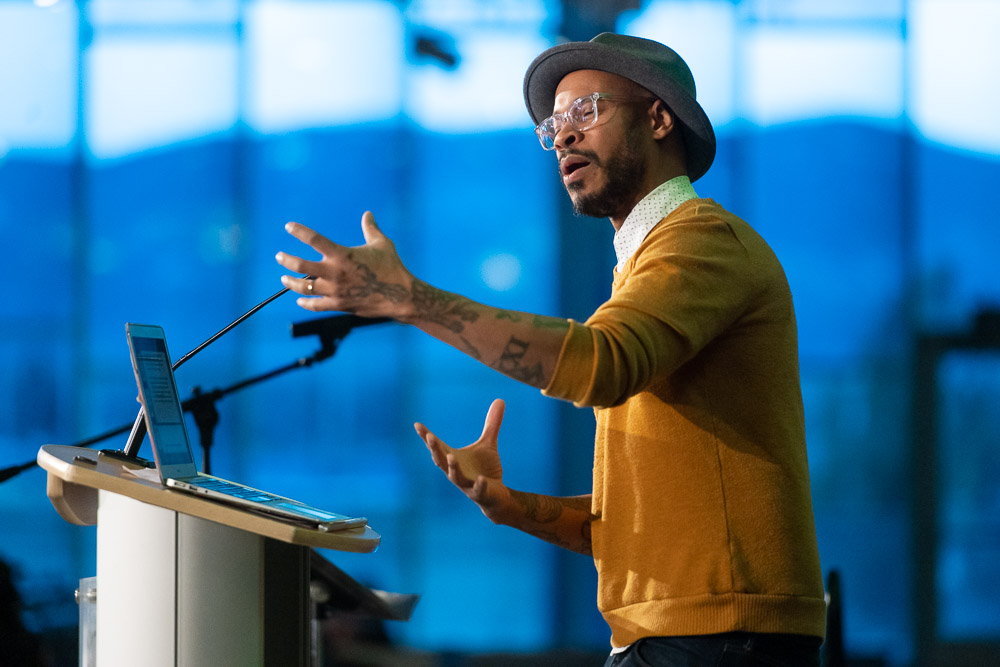
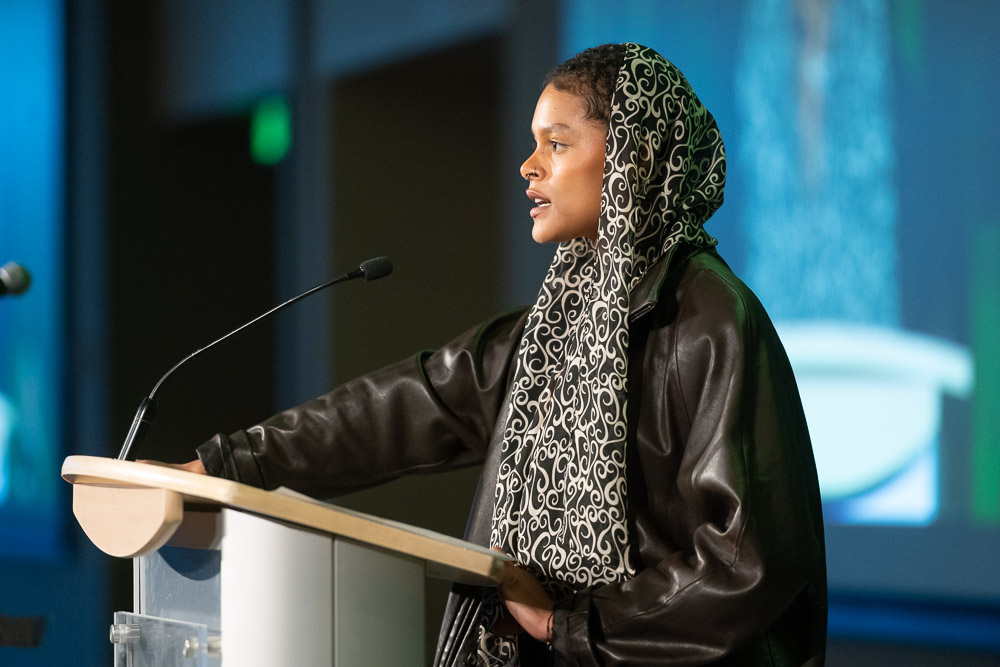
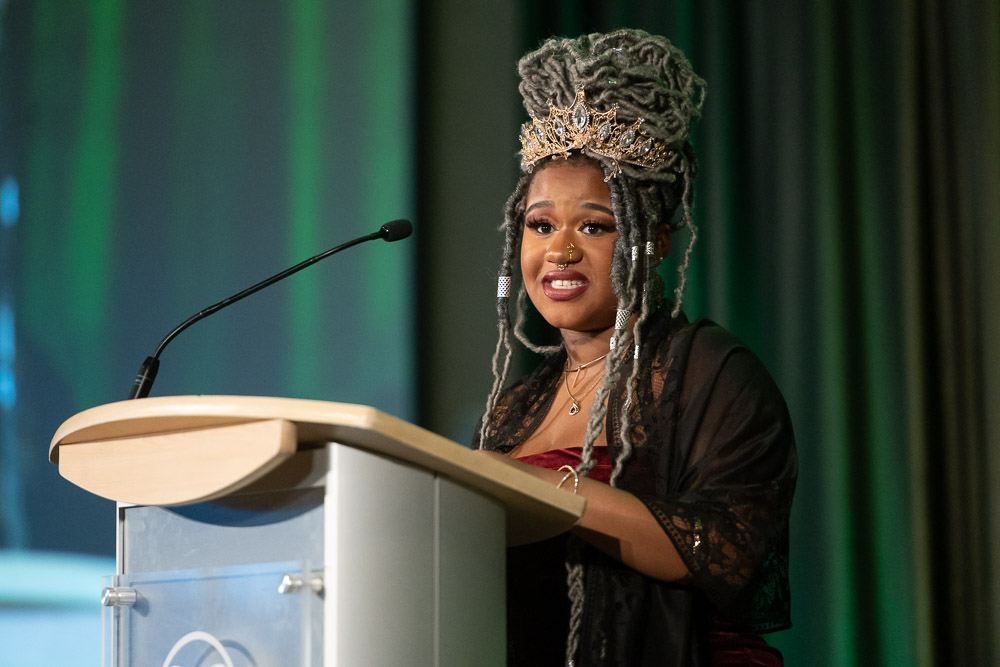
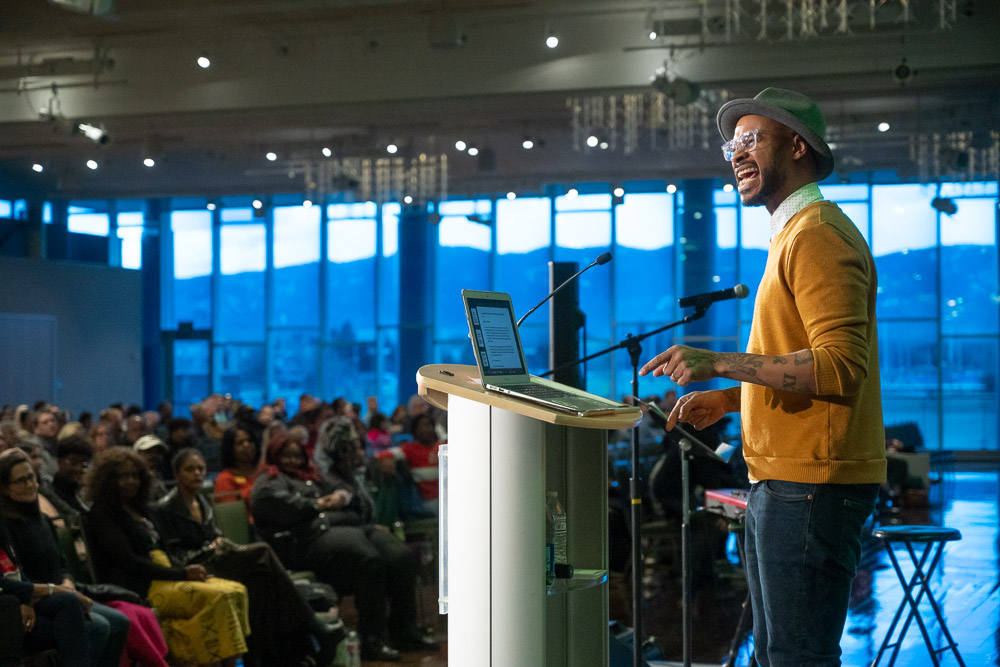
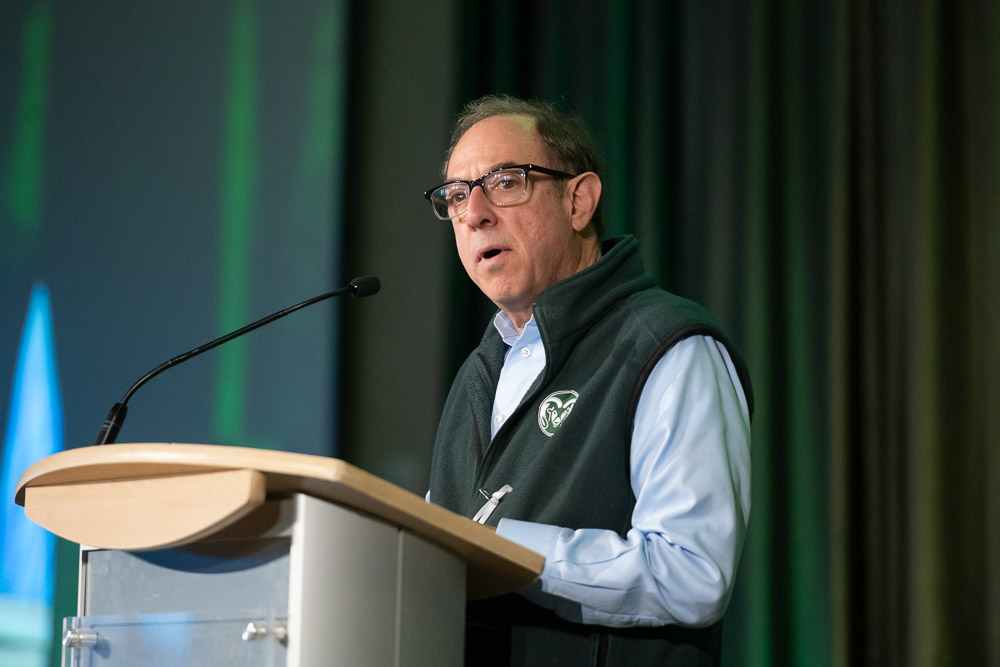
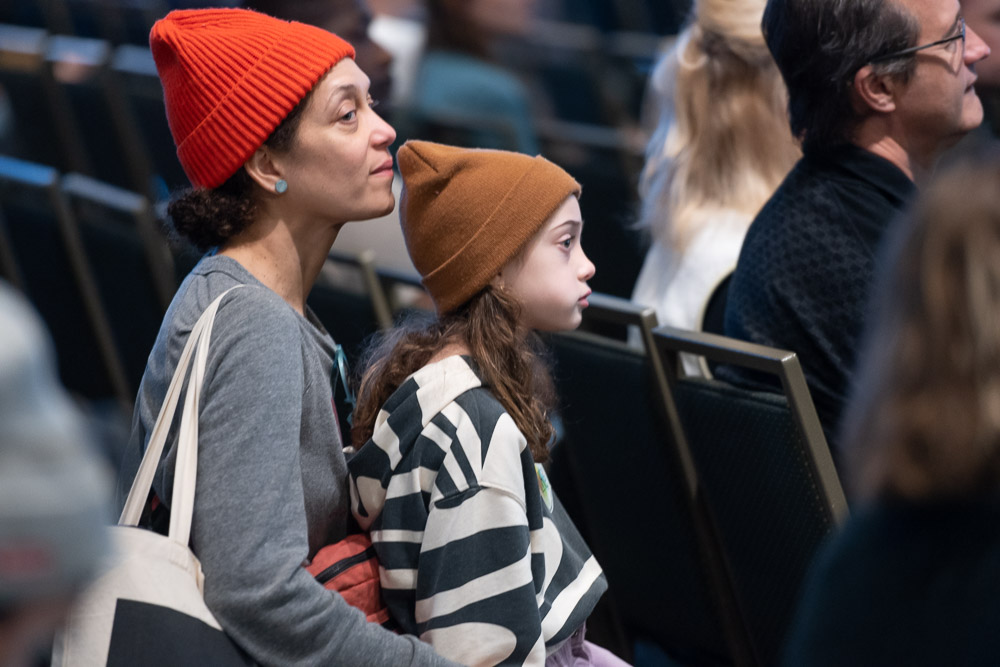
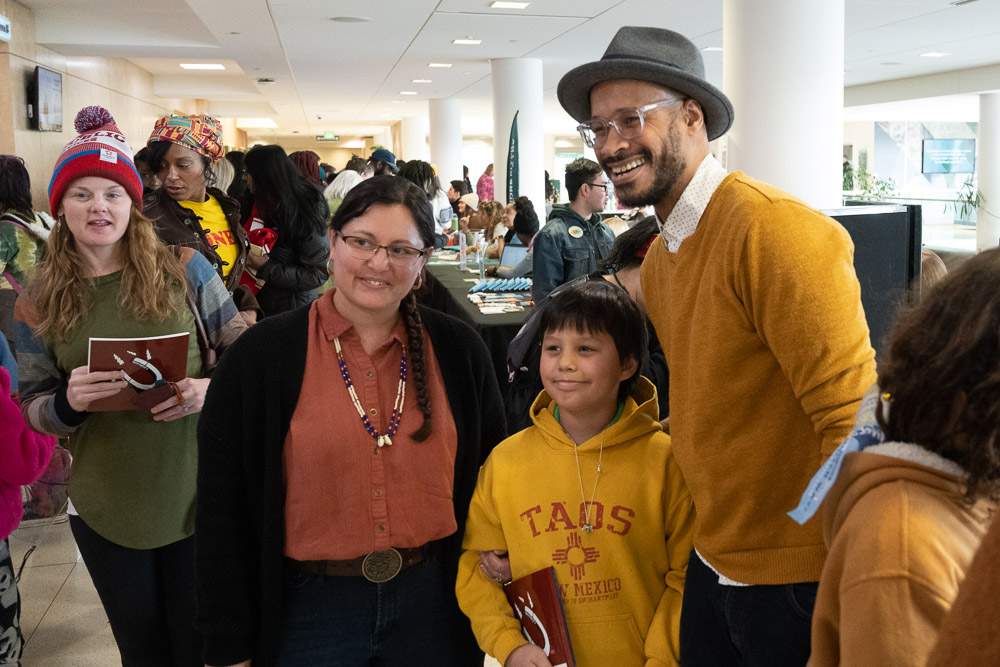
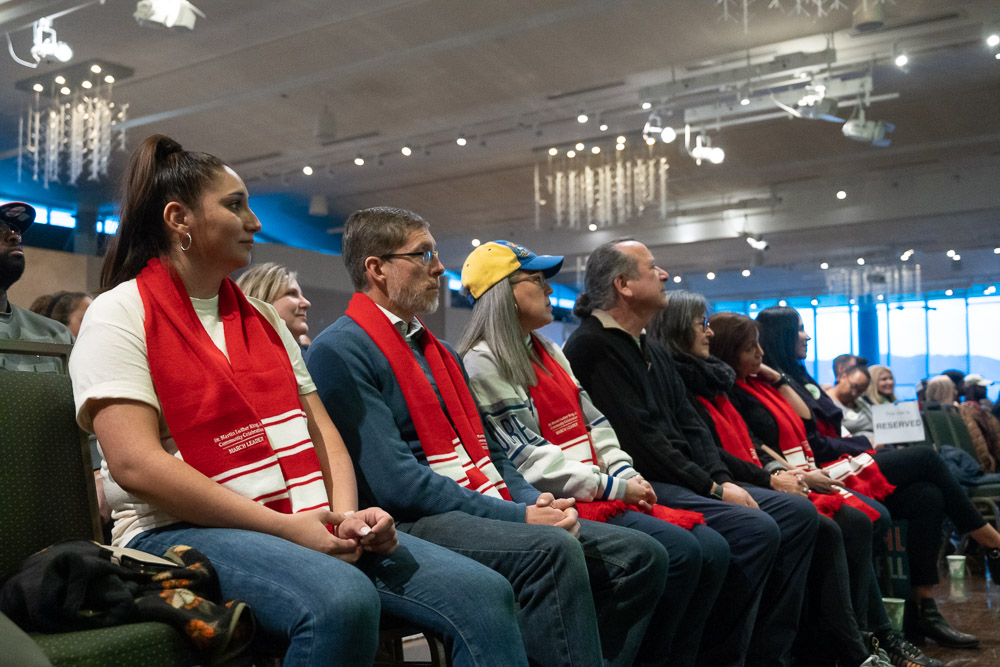
Poet and political activist JC Futrell — known by the stage name Panama Soweto — headlined the special event at the Lory Student Center, which includes additional programming from CSU students and community members. Photos by John Eisele/CSU Photography.
Following the march, community members who arrived at CSU’s Lory Student Center were welcomed with a rendition of the Civil Rights anthem, “I Wish I Knew How It Would Feel to Be Free,” sung by community member Valerie Peaches Embry.
Poet and political activist JC Futrell — known by the stage name Panama Soweto — headlined the event with a spoken-word poem with the refrain “CSU, we do not need to dream,” urging the audience to take action through service.
“Today, you are not silent,” he said. “Today, you stand. Today, you choose to make yourselves breathing symbols of justice and peace. Be accounted for when you are called upon. Do not fear what others think and embrace the first instincts of empathy.”
During his keynote, Panama Soweto evoked the memory of his grandfather, the late John W. Mosley — CSU’s first Black athlete who went on to become a Tuskegee Airman. He noted how his grandfather overcame racism in Colorado and beyond to become a symbol of hope.
“I was raised by a Tuskegee Airman,” he said, “and that’s a little bit like saying I was raised by Superman.”
The poet and activist recounted how his grandfather played an important role in drafting the early policies for Head Start, a groundbreaking U.S. program for children, which supports early learning and development and health.
Through flourishes of spoken-word verses and moments of narrative, Panama Soweto touched on his community’s efforts in successfully leading a grassroots campaign to rename Denver’s Stapleton neighborhood, which was named after former Denver Mayor Benjamin Stapleton, who was a member of the KKK in the 1920s.
“My grandfather was the son of a slave,” he said. “He rose above it all and taught me to do the same.”
While Panama Soweto did not succeed in renaming the neighborhood after his grandfather, he said his community’s continued efforts led to Congress naming the Department of Veterans Affairs community-based outpatient clinic in Aurora, Colorado, as the Lieutenant Colonel John W. Mosley VA Clinic in 2021.
“My grandfather was the son of a slave. He rose above it all and taught me to do the same.”
— Panama Soweto
Remembering his grandfather and Martin Luther King Jr., Panama Soweto encouraged the audience to go beyond the boilerplate “thoughts and prayers” and take action in the community through service.
“There is greatness in us all,” he said. “You can be weightless. You can soar. You can rise above the loudness of Earth and the troubles of humanity.”
In the spirit of service, CSU community members assembled care packages in the LSC Theater earlier in the day for those in need.
The keynote at CSU also included remarks from Interim President Miranda as well as Mayor Arndt, Front Range Community College President Colleen Simpson and Poudre School District Superintendent Brian Kingsley.
Citing King’s 1964 Nobel Peace Prize acceptance speech, Miranda stressed the need to overcome the core driver of oppression and isolation — inequality.
“Dr. King noted as well that all life is interrelated,” Miranda said. “The agony of the poor impoverishes the rich; and the betterment of the poor, enriches the rich. Whatever affects one directly affects all indirectly. … So, on this day, let us celebrate the memory and vision of Dr. King, as well as unlock the potential for equality and justice at the deepest levels of our society.”